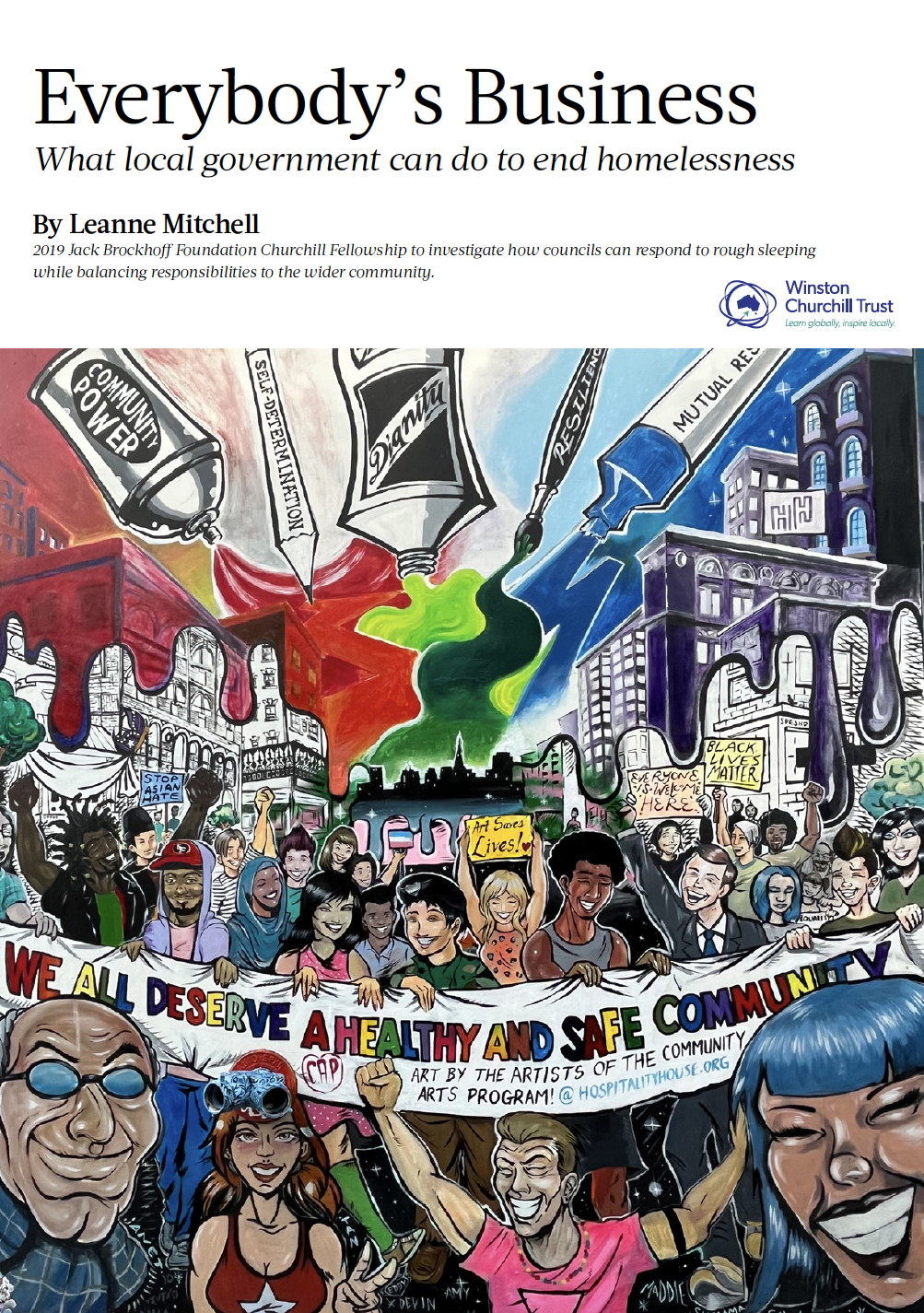While local councils are small, stretched, and underfunded compared to state and federal governments, they are a vital link in solving Australia’s homelessness crisis, a new Churchill Fellowship report points out.
Leanne Mitchell went to Canada, US and UK on her Churchill Fellowship to investigate how councils respond to rough sleeping while balancing responsibilities to the wider community.
Leanne’s new Churchill Fellowship report, Everybody’s Business: what local government can do to end homelessness, found that local governments around the world have a critical part to play.
Australia’s most recent Census revealed more than 122,000 Australians were experiencing homelessness.
“The traditional responsibility of local government might be rates, roads and rubbish, but communities are turning to their councils to take action on homelessness, and at the moment many on the frontline are just not equipped to play their part, said Leanne.
While funding from state or federal governments is urgently needed, the report provides councils with a set of 17 practical guidelines to help them swiftly respond to this growing crisis.
Leanne said that a targeted local funding injection each year direct to local governments could be a game-changer as they are seeking to respond to homelessness in their community.
“There’s currently a huge chasm in the way we handle homelessness in Australia, with hundreds of thousands falling through this gap.”
“Things need to change, and as a nation we must do better.”
“I’ve found out about systems and approaches to responding to homelessness that could be easily replicated in Australia with significant impact.” said Leanne.
Leanne points out the Australian homeless funding models are choked in Australia, so funding doesn’t reach where it is needed.
“State and federal governments hold the money and the mandate to respond to homelessness. They currently overlook the potential of local councils to intervene early, respond nimbly, and capitalise on community connections,” said Leanne.
“In less than ten years, Newcastle City Council in the UK has prevented homelessness in more than 24,000 households by working with local government workers and services to identify the triggers leading to homelessness and the opportunities available to intervene before a person loses their home.”
“In the US, social workers and people with past experience of homelessness, mental ill-health and drug and alcohol use are successfully working in public libraries to help those at risk access support and services.” said Leanne.
CEO of Homelessness Australia, Kate Colvin, said the Everybody’s Business report shines a light on ways to close the gaps in housing and homelessness strategies.
“Local governments know their local community, and can find opportunities to prevent homelessness or provide better responses that other levels of government would miss.”
“A particular benefit is their ability to build the connections between homelessness services and other services in the local community, making it easier for people to find the help they need, and increasing the overall impact on homelessness.” said Ms Colvin.
Leanne’s report is based on research including more than 80 interviews in the UK, US, and Canada on innovative local government approaches to tackle homelessness.
For nearly 60 years, the Winston Churchill Trust has flown talented Australians around the globe to pursue their passion and bring their knowledge home. Churchill Fellows are people from all walks of life and all sectors; the arts, science, health, agriculture, and beyond. The breadth of topics for Churchill Fellowships are limitless.
